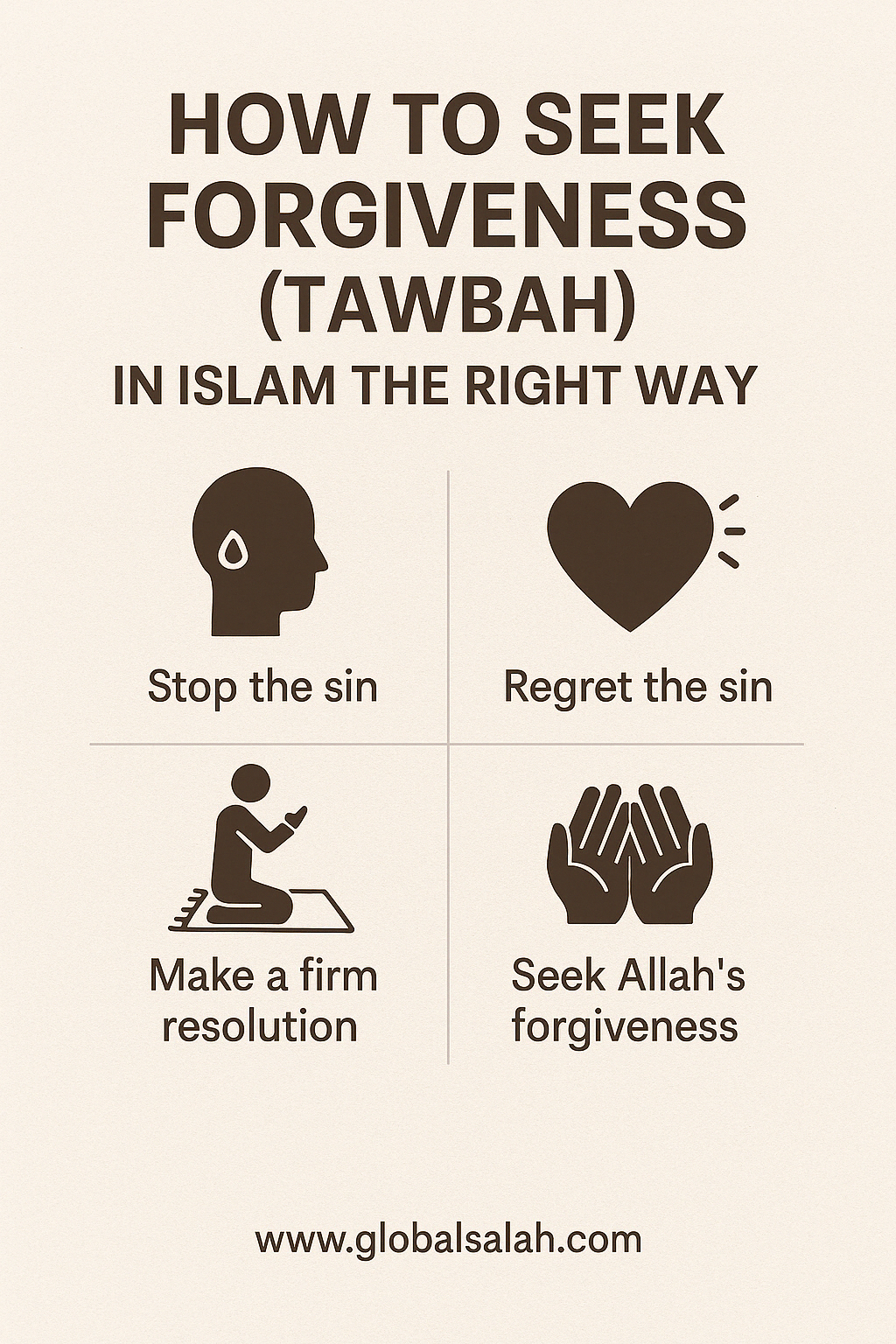Sheikh Abdur Rehman
April 15, 2025 07:14 am

Everyone makes mistakes — but Islam offers a beautiful and hopeful way to turn back to Allah: Tawbah (repentance). In this blog from Globalsalah.com, we explore the power of sincere repentance, how to do it properly, and how Allah’s mercy is always greater than our sins.
Tawbah literally means “to return.” In Islam, it means returning to Allah after committing a sin. It’s not just about saying “sorry” — it’s about deeply feeling remorse, stopping the sin, and making a promise not to go back to it.
Allah says in the Quran:
“O My servants who have transgressed against themselves [by sinning], do not despair of the mercy of Allah…” (Surah Az-Zumar 39:53)
For repentance to be accepted, it must fulfill four conditions:
Stop the sin immediately
Feel genuine regret
Ask Allah for forgiveness
Promise not to return to it again
If the sin involves harming another person (like backbiting or stealing), there’s a fifth step: make things right with that person.
The Prophet ﷺ said:
“Allah is happier with the repentance of His servant than one of you who loses his camel in the desert and then finds it.” (Sahih Muslim)
This shows how much Allah loves it when we turn back to Him — no matter how many times we’ve failed before.
While you can repent at any time, certain moments are especially powerful:
Last third of the night
After Salah
On Fridays
During Ramadan
On the Day of Arafah
Don’t wait for a “perfect” moment — the best time is now.
Here are some beautiful phrases the Prophet ﷺ used:
Astaghfirullah (I seek forgiveness from Allah)
Rabbighfir li warhamni (My Lord, forgive me and have mercy on me)
Allahumma innaka ‘afuwwun tuhibbul ‘afwa fa’fu ‘anni (O Allah, You are Most Forgiving, and You love forgiveness; so forgive me)
Tawbah is not just about fixing a mistake — it’s about rebuilding your relationship with Allah. Don’t let your sins define you. Let your repentance refine you. Allah’s door is always open — all you have to do is knock.
At Globalsalah.com, we’re here to help you stay connected to your faith and walk the path of hope, healing, and mercy.
Tags: